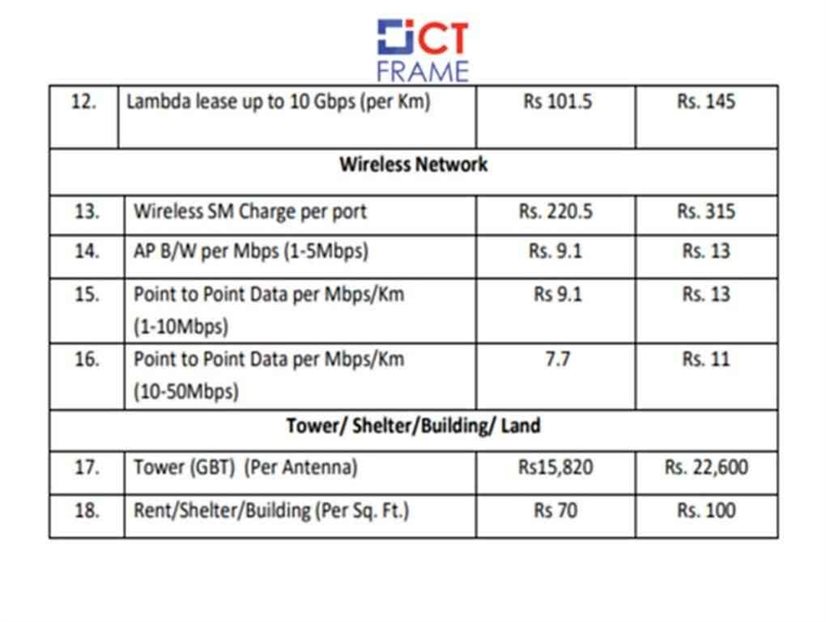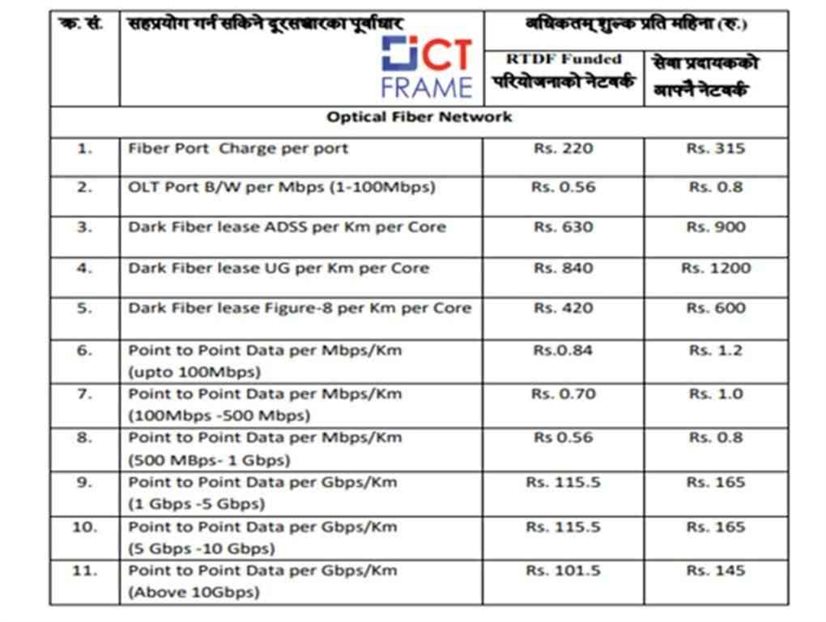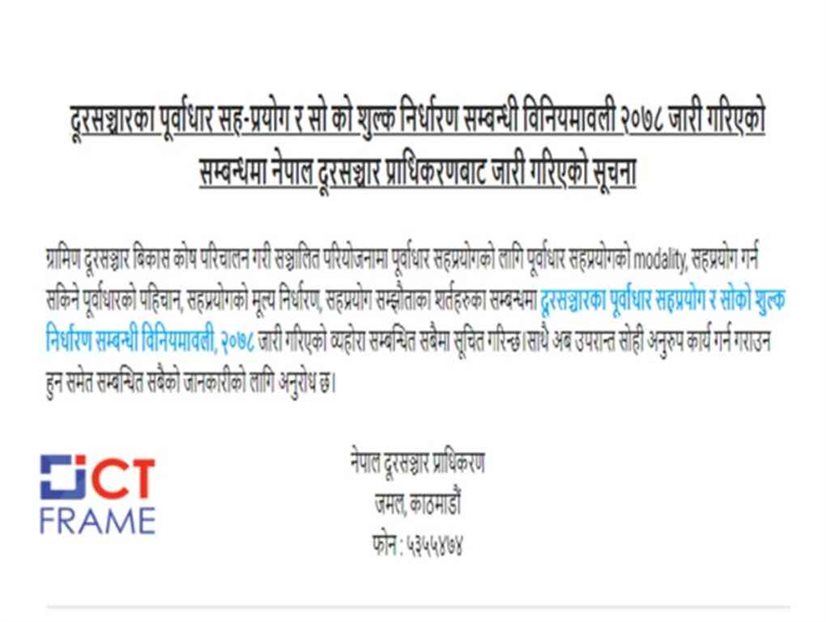Regulations on Telecommunications Infrastructure Approved by NTA
29th July 2021, Kathmandu
The government has made the use of telecommunications infrastructure mandatory. Infrastructure sharing has been made mandatory with the objective of making the service cheaper by reducing the double investment in telecommunication infrastructure.
Nepal Telecommunications Authority has approved regulations related to the use of telecommunication infrastructure and the determination of tariffs.
With the approval of the regulations, telecommunication and internet service providers will no longer have to invest heavily in infrastructure. The NEA meeting on July 12 approved the regulations to reduce the double investment in the telecommunication and internet sectors.
Service providers have long demanded the sharing of infrastructure. The ISPs have long been pressuring the regulator to allow the privately owned Ncell to co-operate with state-owned Nepal Telecom. Infrastructure co-use has now become mandatory with regulations.
NEA has specified which telecommunications infrastructure can be shared.
Sudhir Parajuli, chairman of the Internet Service Providers Association (ISPAN), said that all the provisions were satisfactory as the authority had brought the regulations in consultation with them.
He said that the use of infrastructure is not immediately beneficial in the internet market but in the long run. He says infrastructure co-operation will make it much easier to increase access as well as internet penetration.
Parajuli claimed that the use of infrastructure would help in building a competitive market as it would reduce investment and save on operational and administrative costs.
NEA has brought a provision that co-users of telecommunication infrastructure should use it within three months. The agreement stipulates that the telecom infrastructure agreement will end if it cannot be used within three months.
The service provider, which owns the telecommunications infrastructure, has made arrangements to prohibit co-use requests received from other service providers or to delay negotiations, agreements or work in any way.
The regulations also allow for the mutual use of telecommunication infrastructure by mutual consent. Any two or more telecom service providers will be allowed to co-use the infrastructure by mutual consent. If such an agreement is reached, all parties must inform the NEA within 15 days.
Similarly, any service provider prohibits the re-use of telecommunication infrastructure by other service providers which it has taken from the infrastructure service provider for co-use.
The regulations do not say anything about the establishment of an infrastructure company, which is viewed with great interest.
Provision has been made that the infrastructure provided for such use should be used by the co-user within 3 months of the agreement.
If it is not used within 3 months, the agreement is revoked. Similarly, the infrastructure taken for co-use cannot be leased to another company.
Provision has also been made for the service provider to post the information of the available infrastructure for infrastructure sharing on the website. The regulations have classified the infrastructures to be used in three parts. However, various fees have been determined on the basis of that.
The regulations determine pricing on the basis of projects and service providers’ own networks operated by the Rural Telecommunication Development Fund.
The regulations state that 18 different types of telecommunication infrastructure can be used together. Classified on the basis of fiber-optic network, wireless network, and tower, it includes infrastructure including fiber port, OLT port, dark fiber, point-to-point data, wireless SM, APB / W.
These are telecommunications infrastructures that can be shared (with price).

 The regulations stipulate all these fees at the maximum price per month. Accordingly, the fee for the shared use of the infrastructure provided by the service provider will have to be approved by the authority. Co-use can be negotiated at a lower fee.
The regulations stipulate all these fees at the maximum price per month. Accordingly, the fee for the shared use of the infrastructure provided by the service provider will have to be approved by the authority. Co-use can be negotiated at a lower fee.
According to the representative of the internet service provider, if the regulations are implemented, the price of the internet will be much lower than at present. If you don’t have to invest in infrastructure, it will be easier to expand the internet.
This will enable the service recipients to provide quality internet at affordable prices. But, for that, now the service provider has to approve it and NEA has to make necessary facilitation.







